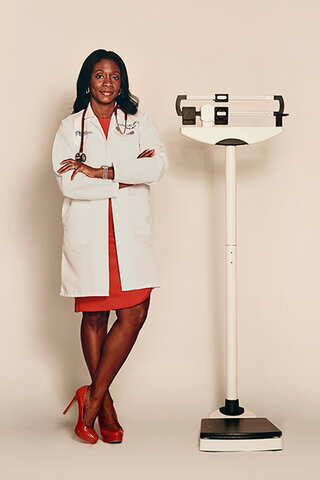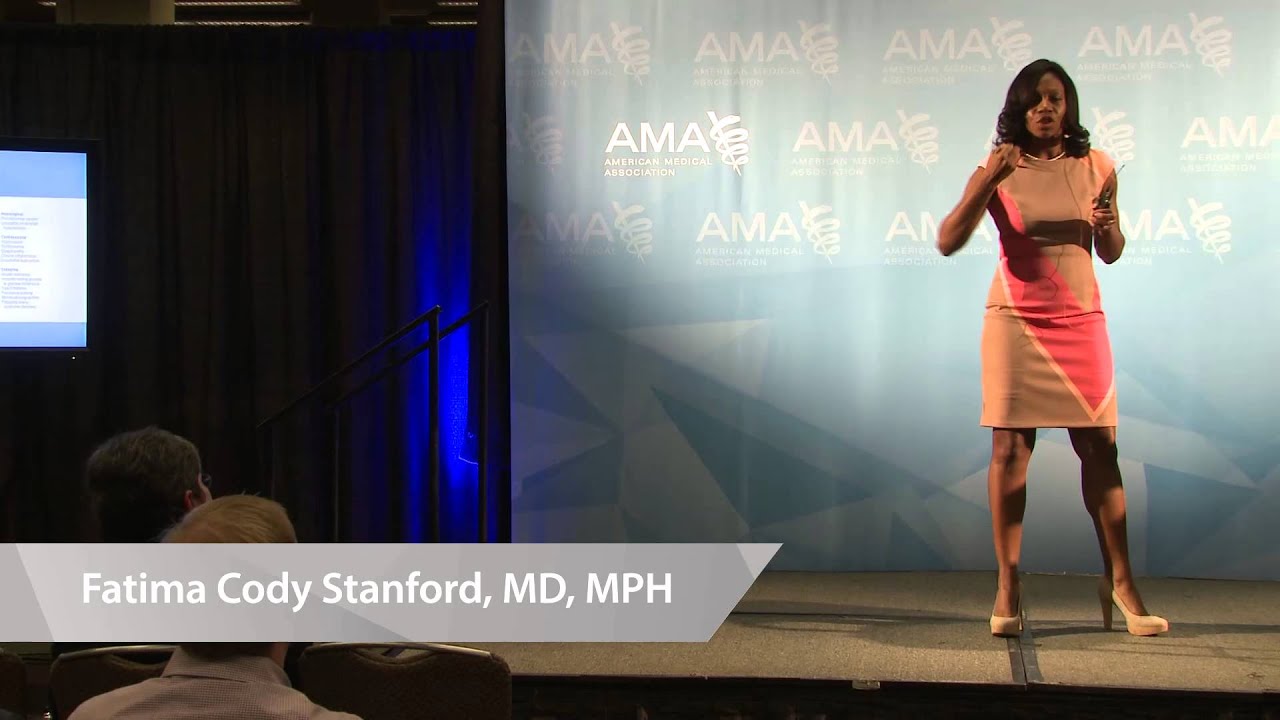The Physician Spotlight series highlights members of the Doximity network. This week, we interviewed Fatima Cody Stanford, MD, MPH, MPA, FAAP, FACP, FAHA, FTOS., obesity medicine physician scientist at Massachusetts General Hospital and Harvard Medical School.
Q: Why did you decide to pursue a career in medicine?
A: My career and passion for medicine stems from about the age of 3, when I decided and told my family and my teachers that medicine was my passion. What I saw in medicine, specifically as it relates to being a physician, was that you lead the team and you are responsible for providing that care for a patient in a compassionate way. And I felt that I was very capable of doing so, even at the age of 3, that I was able to be that person. And so, I really set my life path along the continuum of ensuring that that became my reality.
Q: What are some of the biggest challenges you face day-to-day as a physician?
A: There are multiple challenges. I think it depends on where you’re located, but the level of support that you are provided by your staff can often make or break how you feel about your daily practice with patients. In my particular setting, I’m usually the person responsible for contacting the patient to let them know that labs are due or follow up with them on their response to a new medication. What that ends up doing is taking away time with my family.
On a typical patient day, I get home close to 11 pm. That is the typical, and that can be stressful. It can lead to, obviously, issues with physician well being, me as the physician, and although the work brings me joy, the logistics around just doing the documentation, doing the work that’s not really work directly with the patient, is not really what I went into medicine for. I didn’t get into medicine to be the lab informant. I didn’t come into medicine to be the documenter, spending 10-plus hours a day doing that. I pursued medicine to deliver the care to the patient to the best of my ability, to help them have the best quality of life.

Q: How does Doximity fit into your day-to-day life?
A: Doximity was really the first company to embark on a mission to bring together communities of physicians. When I think about my daily use of Doximity, the Dialer is what comes to mind. I use Doximity at least 325 days out of the year. I’m often traveling for lectures or conferences and I want to contact my patients. I realize that if I contact them from a number that’s unfamiliar-- they’re not going to be interested in answering the phone. When I’m using Dialer, I find that more than 90% of my calls go answered from my patients, which is exactly what I need in order to communicate information that’s pertinent to their care. In terms of what I do multiple times daily, it’s using Dialer to contact patients. And I think that increases the level of care that I’m able to provide.
Q: When you reach your patients directly and more efficiently outside of the appointment in person, how does that impact their care?
A: I think so much of medicine is automated, so often times patients are getting an automated reminder or whatever it might be. Hearing from their doctor outside of the setting of their office can sometimes feel like you’re doing a visit in their home. I will often hear, “Thanks so much for taking time to call me!” So, I think you’re creating a better personal connection with your patients, which I believe impacts patient outcomes in a positive way.
Studies after studies have proven that when you have a great rapport with your patients, the outcomes are better.
Q: When it comes to stronger communication, how does Doximity help doctors?
A: Doctor-to-doctor communication is of the utmost importance because often we have siloed care. In order to optimize a patient’s response to any therapy across their domains of medical conditions, the collaboration around their care is very important.
Often, doctors are operating with regards to a patient in a very disjointed fashion. However, Doximity enables me to communicate efficiently with my colleagues. For example, I may reach out to a physician who is working with the same patient and say, “I saw that you prescribed this medication and I was wondering if we might consider this alternative because it might help us maximize the treatment of this particular condition.” Maybe, they’re aligned with that. Maybe they have other thoughts. So, Doximity allows me to make sure that we’re doing is the best thing for that patient.
Q: What are your hopes for the future of medicine?
A: As an obesity medicine physician scientist, one of the things that’s always on my mind is the poor education that happens for medical students, residents, fellows, and practicing physicians surrounding the disease that is obesity.
Forty percent of the U.S. adult population has obesity, and despite that, if I were to ask my physician colleagues anything about the very basics of obesity as a disease, they would look at me with a puzzled stare. But if I ask them about let’s say a very rare condition, then usually can generate numerous facts on command.
One of my hopes is that medicine will do a better job of recognizing that obesity is a disease and it is often the primary reason for many other diseases. For example, we’ll treat diabetes, sleep apnea, heart disease, etc, when we could’ve really just treated the obesity itself and possibly avoided and/or treated those subsequent issues. When I think about my work in both the pediatric and adult space within this specialty, a lot of my goal is to make sure that our education is improved.

